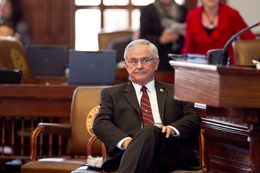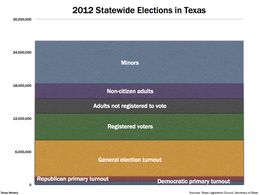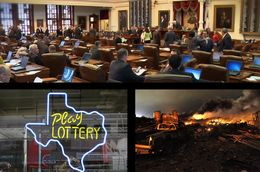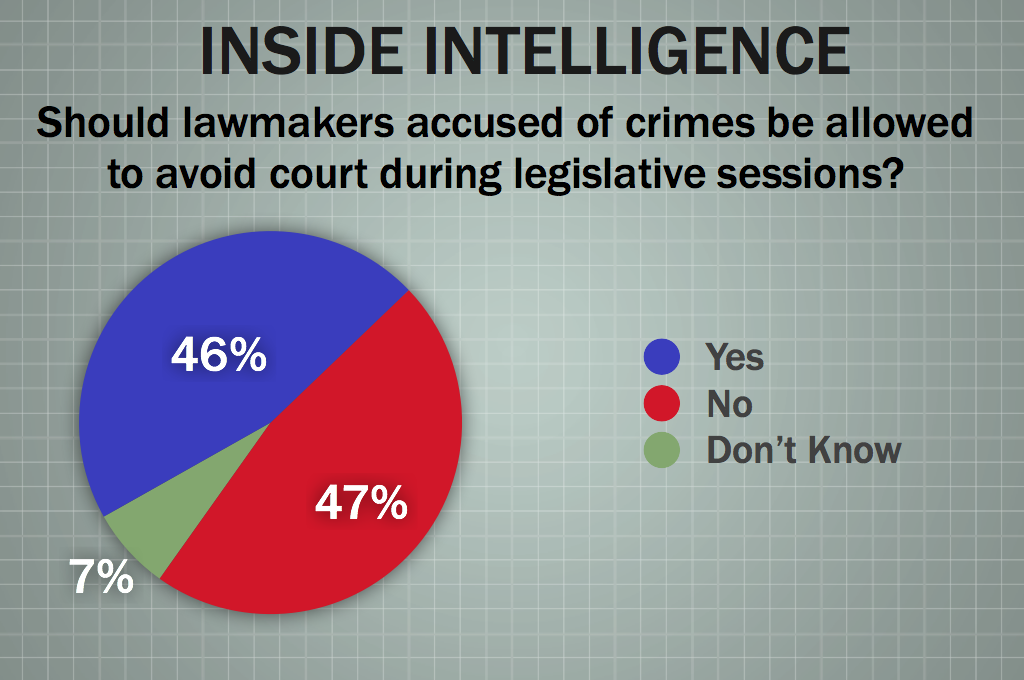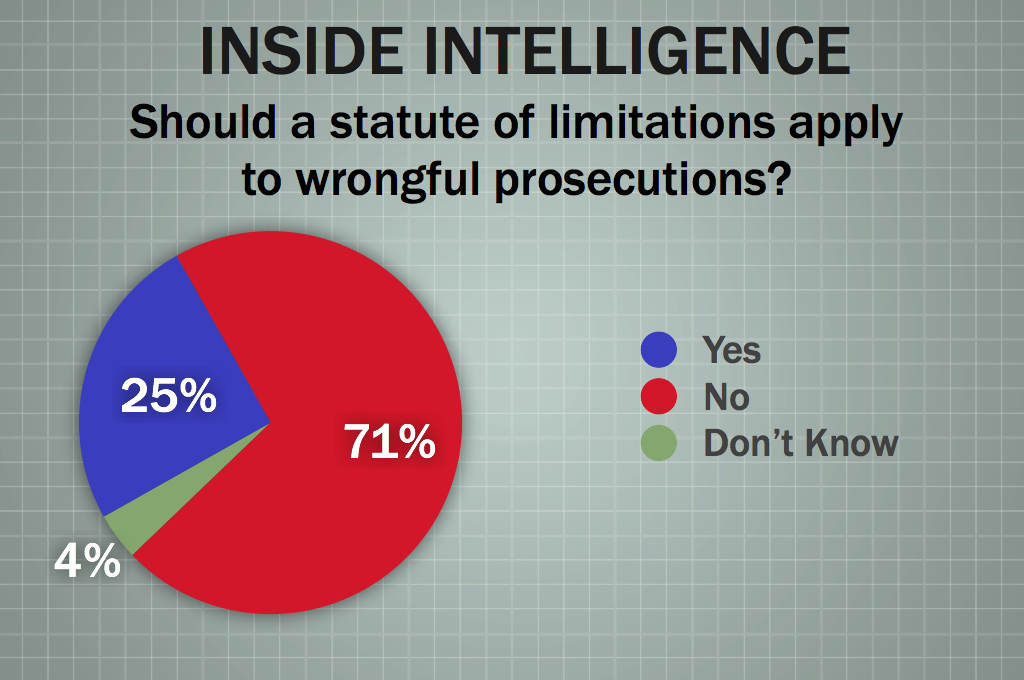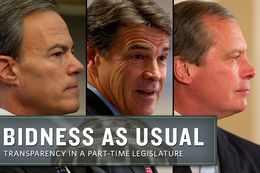
![]()
This is one in a series of occasional stories about ethics and transparency in the part-time Texas Legislature.
Six months before the Texas Legislature kicked into gear, Gov. Rick Perry told reporters that candidates for public office should be as “transparent” as they can possibly be with their personal financial interests.
It has remained the term du jour for state leaders this legislative session, used by everyone from House Speaker Joe Straus to Lt. Gov. David Dewhurst to endorse honesty in budgeting, improve grant-making in the state’s troubled cancer agency and get to the bottom of conflicts in higher education.
But with just four weeks remaining in the legislative session, there has been little to no pressure from the top — including key committee chairs — to pass measures that would force greater transparency upon Texas’ elected officials.
The state's top leaders say they've been focused on pressing legislative priorities. For Perry, that's improving budget transparency. For Straus it's water, education and transportation. For Dewhurst, it ranges from balancing the budget without raising taxes to reforming high-stakes testing and expanding school choice.
While Dewhurst has not been out promoting lawmaker transparency bills, the lieutenant governor said that "government transparency has always been a priority of mine." He is supporting legislation the comptroller proposed to help taxpayers better understand state finances, and added that "the Legislature has also reacted strongly this session to [the Cancer Prevention and Research Institute of Texas'] lack of transparency as well as transparency issues with the UT Board of Regents."
Straus said while he believes ethics reforms that directly affect lawmakers are important, he wants to "let the process work." (The bill to reauthorize the Texas Ethics Commission, which could potentially be loaded up with transparency amendments, could hit the House floor as early as this week.) Straus also pointed to his own appointees to the board that oversees the Ethics Commission, and said he expected them "to take the lead on many of these issues."
Perry wouldn't comment on specific legislation. While he has voluntarily released his own tax returns for years, and said that "transparency and accountability to the people of Texas is extremely important to me," he has stopped short of publicly backing measures that would force legislators to disclose more information.
Instead, he said, "Texans deserve a much higher level of transparency when it comes to their tax dollars. We need to make it easier for them follow how their hard earned dollars are spent in Austin."
State Sen. Wendy Davis, D-Fort Worth, said it's one thing to call for transparency in state government, another entirely to hold lawmakers to higher standards. “Anytime a bill impacts the legislators directly, it seems to go nowhere,” she said. “It shields us from transparency.”
Several bills in the House and Senate that would improve reporting on lawmakers’ outdated personal financial forms or put the archaic paper filings online haven’t even gotten hearings in the three committees where they’ve been referred: Senate State Affairs, House State Affairs and House Elections.
Three bipartisan bills aimed at slowing the revolving door that sends elected and appointed officials directly into the lobby appear jammed; two haven’t received hearings and one has been pending in committee for weeks.
A House bill to end Texas’ practice of double-dipping — which has allowed politicians, including Perry, to start reaping retirement benefits without leaving their jobs — only recently got an initial hearing.
And a measure with 25 co-authors that was nearly derailed during a tumultuous February hearing — Rep. Giovanni Capriglione’s bill to require lawmakers and their immediate families to report contracts with governmental entities — is still tangled up in House State Affairs. The Senate companion filed by Davis hasn’t gotten a hearing.
Asked about the fate of such ethics legislation, House State Affairs Committee Chairman Byron Cook, R-Corsicana, said it’s not that legislators are opposed to shining a bright light on their own affairs. “The whole issue with transparency is, let’s deal with it in a forthright manner,” he said. “If we’re going to advance transparency, let’s make sure we do it right.”
His Senate counterpart, State Affairs Chairman Robert Duncan, R-Lubbock, said he's not opposed to such measures, but that they should be executed in the context of comprehensive reform, rather than with "single-shot" bills from lawmakers fresh off the campaign trail.
“In the system of ethics reform that we operate under, I think most members believe that these single-shot bills shouldn’t be heard, and we shouldn’t deal with ethics reform on a piece-meal basis," he said.
So far, the only “transparency” legislation getting real traction would establish interim studies on ethics, require elected officials who run for higher office (i.e., Perry) to cover their travel and security expenses with campaign funds and force politically active nonprofits to reveal the identities of their major donors. None of those bills change the level of disclosure for lawmakers themselves.
Capriglione, R-Southlake, expressed frustration with the process. He said that the lower chamber has already passed an interior decorating bill, but not meaningful transparency legislation. “I thought we’d be a lot farther along by this point, given the conversations we were having prior to the session," he said.
A spokesman for Dewhurst said that while the lieutenant governor has disclosed his own personal finances (in the form of tax returns during his failed bid for U.S. Senate), legislating lawmaker transparency can be complicated. He noted that the Center for Public Integrity ranked Texas fourth for financial disclosure by lawmakers.
"Texas needs to require sufficient disclosure to allow voters to make informed decisions and help avoid conflicts of interest," said Travis Considine, chief spokesman for Dewhurst. "But we don't want to unnecessarily discourage good people from running for office because the process is too invasive for them and their family."



